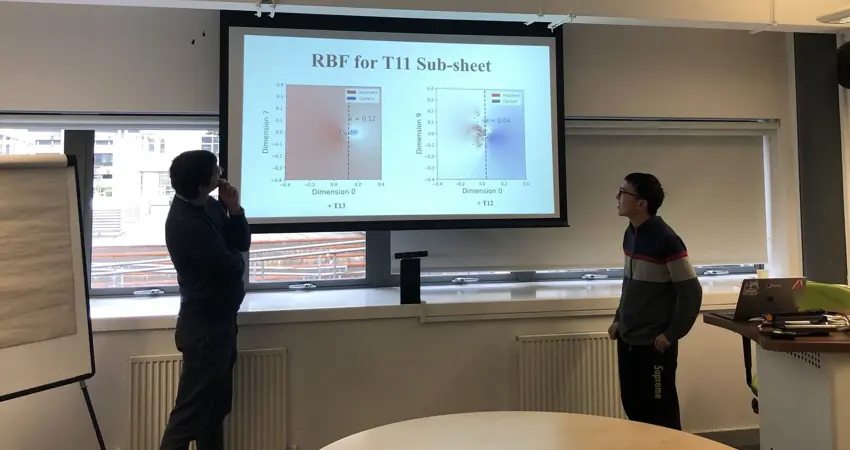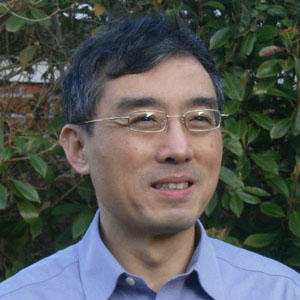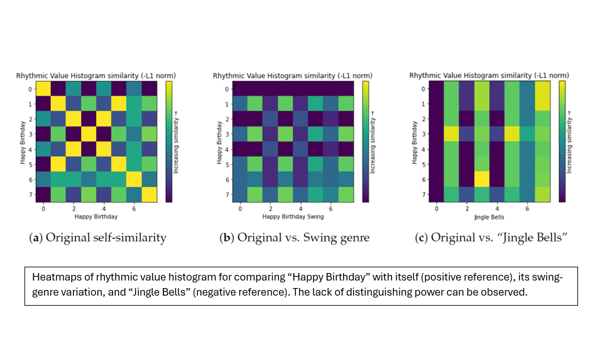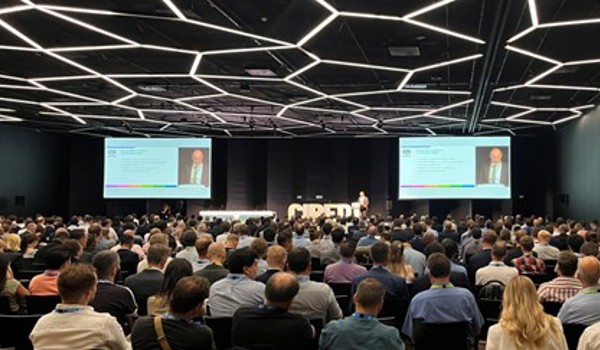18 Jun 2024
Collaboration: The Key to Growing
The NeEDS programme enables bigger and brighter collaborations between universities and technology companies in Europe

Adrian Carrasco-Revilla and Yuanzhe Jin collaborating at Oxford e-Research Centre as part of the NeEDS project
As part of the Network of European Data Scientists (NeEDS) programme , Oxford e-Research Centre welcomed Adrian Carrasco-Revilla, Senior Data Scientist with Inetum Madrid, who visited us for the month of April. Adrian worked closely with Professor Min Chen and his team, in particular DPhil students Yuanzhe Jin and Chenhao Xue .
“It’s been an incredible month because not only did I get to see the final results but in addition we were able to find new research opportunities,” Adrian told us.
“Being in this aura of research and creativity so many more things come up. For a company to have this opportunity is key to growing”
Present in 19 countries, Inetum is a European leader in digital services with 28,000 consultants and specialists making a digital impact for businesses, public sector entities and society. Their aim: ‘to make the best technology easy to use’.
The problem Adrian came with was how to use AI to improve the machine learning models used in automated IT support ticketing systems. “Some issues occur much more frequently than others,” he explained, “so we need to create text classification models to help identify the problem more quickly so that the solution comes much faster. But the machine learning models often do not know how to classify messages about the topics that occur less frequently. What we’ve been doing together with Oxford has to do with how we synthesise training data using AI. Instead of asking the client to provide more data, we would make it ourselves. We would use generative AI capabilities to do that, so we have more training data for the topics that occur less frequently.”

Professor Min Chen and Adrian Carrasco-Revilla discussing the NeEDS project for Inetum, Madrid
Adrian found his time with Oxford e-Research Centre to be of immense value. “With Professor Min Chen and his team, we’ve used visualisations to accurately pinpoint the misclassified tickets that will be used as examples for synthesising new data, so we are therefore able to improve the model that made mistakes. It’s fascinating because it’s opened up a whole new area of investigation.”
“You have your answers and that's what you wanted, but then you also have questions that you didn't think of”
As a result they came up with more ways to improve the solution than they expected.
Back in Madrid, the process continues. Adrian explains, “the next task will be how to turn what we learned into part of our product, to make it ‘concrete and physical’. Yuanzhe is coming to Inetum in Madrid, and he's going to finish the research. We will be integrating that part of the solution into our systems, so the month that he will be with us is going to be incredibly valuable. After that Chenhao is coming, and he will focus his research on the computer vision side of this tool, in other words, the part which currently needs the involvement of a developer in order to make it fully automated.”
Adrian looks forward to further collaboration. “Our work is never fully finished. There are some other questions from business cases that I would love to tackle. Collaborating with the Oxford e-Research Centre, we’re able to come up not only with a solution but with arguably the best solution."
"To have this opportunity to work with people who are not afraid to challenge your ideas and who really communicate these things is fundamental in our line of business”
“From my point of view, the biggest thing coming out of this NeEDS project is the real proof that the collaboration between universities and companies is not only good, but it's necessary.”





